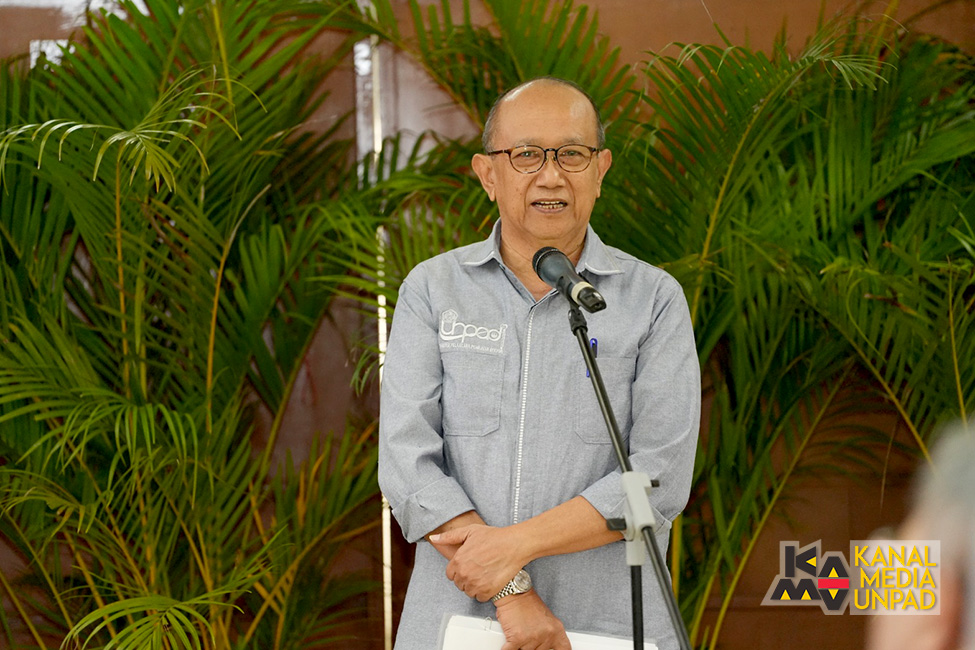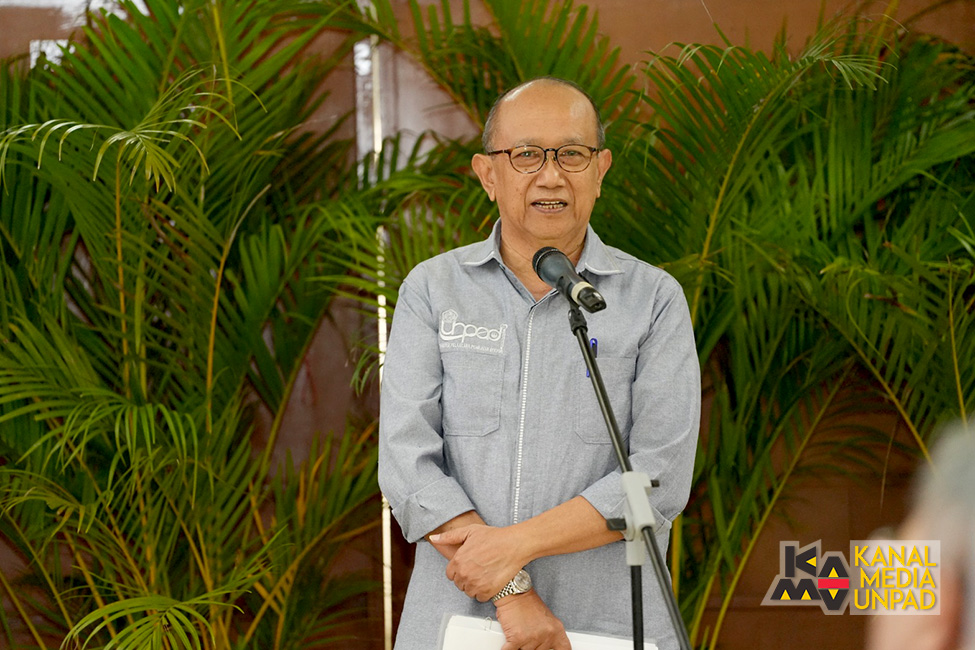
Understanding the Israeli-Palestinian Conflict Through the Perspective of Political Psychology
Jatinangor, May 23, 2024 – Public lecture “The Current Situation of the Israel-Palestinian Conflict: From the Perspective of Political Psychology” was held by Faculty of Psychology Universitas Padjadjaran in a hybrid setting at S-3 Conference Room Building 1 Fapsi Unpad, Jatinangor, Sumedang, on Tuesday (21/5). This activity received attention from several faculties of Unpad, one of which is the Faculty of Cultural Sciences (FIB).
In this public lecture, Fapsi Unpad invited former Indonesian Ambassador (one of them for the European Union, Belgium, and Luxemburg) and alumnus of Fapsi Unpad, Nadjib Riphat Kesoema. This activity was opened by the coordinator of the Political Psychology course of Fapsi Unpad, Dr. Zainal Abidin, M.Si.
As the opening speaker, Zainal stated that this public lecture has been held regularly during the last four years. He also mentioned that only a year ago, Fapsi Unpad had started to invite experts to attend this public lecture, one of them being an international policy expert.
Furthermore, Nadjib presented material on the conflict between Israel and Palestine from the perspective of political psychology and historical accounts. He emphasized that currently, the Israeli-Palestinian conflict is an overwhelming humanitarian problem and should not be considered a trivial matter.
The ambassador, who is also a member of the Universitas Padjadjaran Board of Trustees, explained that analyzing conflicts and promoting peace through the study of identities can be carried out from the perspective of political psychology, which focuses on the impact of leadership and personality of key figures on decision-making. Moreover, the analysis can also be conducted through the key personality approach in political psychology.
Nadjib explained that political psychology discusses the understanding of political behavior, ranging from familiar political behavior to seemingly incomprehensible political behavior.
In political psychology, every nation has a distinct identity and is not limited to individuals. The nation’s identity is most evident in the key figures or leaders of a nation, although the nation’s character is shown by the whole society. Nadjib explained that these key figures and leaders will provide a “mass identity” such as the personality of many people.
There is also a shared belief about a particular nation having distinctive personality traits, which can also be referred to as national character or national stereotypes, or even national identity.
“National stereotypes are portrayals of a society’s character,” Nadjib added.
The approach used when analyzing conflict is collective politicized identity. Collective politicized identity is a political psychology approach that is connected to three concepts, namely collective identity (giving a label to something), power struggle (the struggle for power), and the complexity of the social and human context that is more extensive than just a power struggle.
“There are many theories of political psychology that we can incorporate to approach this problem (the Israeli-Palestinian conflict). But I want to us to knock on our own hearts and see that this is an unimaginable human problem. An unforgettable human tragedy is happening right now in front of our eyes,” Nadjib explained.
Psychological reconciliation is also important in resolving a conflict. The psychological reconciliation aspect requires a change in the ethos of conflict. He explains that we have to take hold of the essence of the conflict and look into the core of what is really going on.
Furthermore, Nadjib explained that in psychological reconciliation, one also needs to respect the beliefs of the community, where the beliefs of the group must be dissected and examined thoroughly. Nadjib also noted that establishing an ethos of peace is also necessary by replacing deep-rooted conflicts with an ethos of peace.
Additionally, he pointed out that the realization of peace and conflict resolution is a major contribution of political psychology and can be done through the application of a culture of objective-based dialogue, appropriate and thoughtful approaches to all forms of polarization, mitigating collective efforts to address root causes, and sensitizing the leaders of conflicting groups.
Writer: Yohanes William Ivakdalam
Translator: Dhia Anaulva Putri





